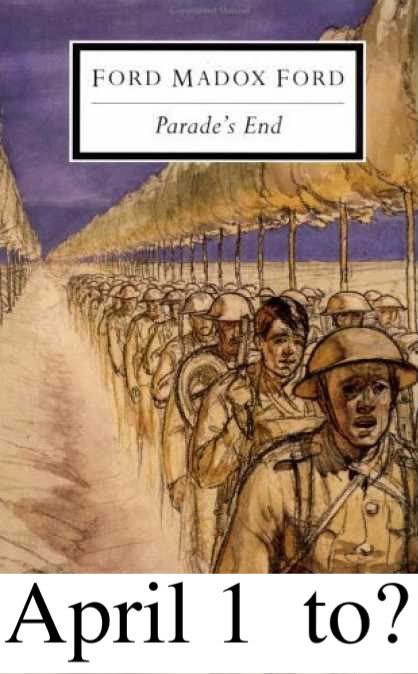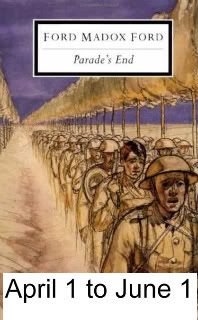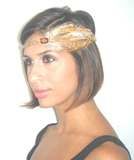No More Parades by Ford Madox Ford (1926, 212 pages-part II of Parade's End)
I am now a bit past the half way point in Ford Madox Ford's tetralogy set in the WWI era in England, Parade's End. No More Parades takes us a few years ahead in time. We now see Christoper Tietjens in his role as a British Army officer serving in France. His primary job is to prepare draftees for front line assignments. He has normally about 2800 men under his command. he tries to be a good compassionate commander but he also is a bit offended by having to deal directly with men whose class level is way below his. Parade's End is very much a story of class distinctions. Tietjens is under the command of a General to whom both he and his wife are very close personally. There is a lot happening in this part of Parade's End. A lot of the plot action and narrative line is carried through conversations. Some time I had to read the conversations two or three times just to figure out who is speaking. I know that pretty much that only those very interested in FMF or Parade's End will ever read my blogs on the work so I will not try to convey too much of the plot action-the fun is in part in trying to figure it out.
I have some sort of random observations on the work so far. Previously I had said that I thought Parade's End could be seen as a kind of Encyclopedic Narrative (in the meaning of the term coined by Prof. Mendelson). I now no longer think this as it does lack some of the meta-qualities of such narratives, its scope is too narrow, Tietjens' mathematical knowledge does not really provide us the outlines of the sciences of the times (as found in both Gravity's Rainbow and Moby Dick). I think part of the deeper theme of Parade's End is that encyclopedic narratives are of necessity wrong (remember the hobby of Tietjens in finding errors in the dominant encyclopedic of his time, The Britannica) and that truth is as much subjective as objective. If you read Parade's End and come away seeing it as a straight forward work than you for sure understood you missed the point! Perception is created by cultural and culture by perception deepened by reading and art. History is a set of stories to make what happens seems morally right.
The book is for sure very political and harshly judgmental in its treatment of the causes of war and the concern of leaders for the millions who will be killed. (FMF went to war at age 41 and had what seems to be a nervous breakdown). It is a very interesting study of the nature of marriages particularized through the marriage of Sylvia and Christopher Tietjens-they are at perpetually loggerheads and always on the brink of divorce but each one satisfies the needs of the other in some very deep and hard to quite fathom ways. Parade's End finds Tietjens under arrest for striking a fellow officer who behaved in an improper way toward Sylvia. I love the conversations in Parade's End, I know whenever Tietjens speaks there is a good chance it will be something which I can learn from or marvel at at least. Not all of his statements in the conversations about art and literature are correct and some are said mostly as the thought of the moment and we need to catch his errors if we can. This is one great way the internet has helped readers-any reference to something you have not heard of can be tracked down at once. I am also starting to see the effects of the war on our characters.
I will admit sometimes in reading this book I am reminded of The Monty Python Skit in which there was a contest for "Upper Class Twit of the Year" . I do not say this as a reflection on the book but it did come to mind more than once.
I will, I think, attempt a more grandiose summery of themes and methods and such in Parade's End when I have completed the work. FMF famously said of Flaubert's A Sentimental Education that one should not consider themselves well educated until they had read it 14 times. Parade's End does remind me a lot of A Sentimental Education. Parade's End is a very edifying book as well as superb entertainment, what more can I ask from a novel?
I strongly urge those interested in Parade's End or FMF to read the posts on the novel at A Common Reader
There is really so much in this novel that I do find it hard to decide what to post on it. I have noticed that FMF has a thing for magpies! This is a very rich book. I will not say that it is an easy read or that one could lollipop their way through its 830 pages with much profit. I am willing to say it is a great work of art and all who seriously try to read it will be way over paid for their time. It also really is a lot of fun. Most would probably tell you to read his The Good Soldier first and I guess I would also.







